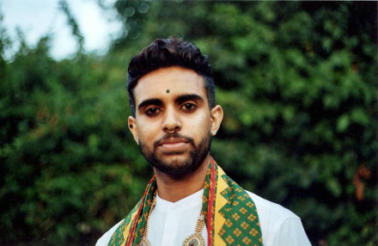People will not reach out for support if they don’t see that a charity understands and reflects them, sector leaders heard last week.
Sabah Choudrey, a youth support worker, delivered the opening plenary at Civil Society Media’s Charity People & Culture conference last week. They also urged charities to ensure that they are doing all they can to support employees from diverse backgrounds.
Choudrey said: “I believe that we tell ourselves that including others is complicated; we tell ourselves it’s expensive too. How many times have I heard ‘I need to check the budgets’ when I’ve asked for someone to be included.”
But if diverse communities are not represented in charities, then people “don’t reach out for support because they don’t see themselves reflected in the services or themselves reflected in the language”.
This means “we have one less person in our spaces”, which is “one less person I am able to support. One less person able to support me too.
“We both end up more isolated because of it. Exclusion isolates both of us.”
‘Don’t just employ us, support us to support us’
Choudrey also told delegates that it had been isolating to be either the only person of colour or only transgender person working in an organisation, and called for people to do more to support their co-workers.
In one job, as a youth worker supporting diverse communities, Choudrey said that as the only non-white member of staff, they were expected to shoulder the burden for all diversity issues.
They had four supervisors, including a trustee who was a woman of colour.
“It really spoke to me when I was working there that the white CEO wanted me to have space where I could have honest and open conversations about my BAME work experience,” they said, but added: “It also spoke to me when I was working there that the white CEO had to reach outside of the staff to the trustees to find a person of colour to support me.”
Choudrey also said that one time, six white colleagues sent them an email about BAME awareness training. Choudrey attended the training in order to learn more but none of their colleagues did.
“Six times I was told about BAME awareness training from six different white colleagues, who told me in six different ways that they were not going.”
This led to Choudrey feeling isolated. “They left me to deal with diversity issues on my own.”
In a later role at a larger organisation, Choudrey said that they were disappointed to discover that they would be the first trans person to work there, and that the rest of the staff had not received training.
“I didn’t feel like a priority,” said Choudrey, which also meant they felt as though the trans youth they would be supporting were not a priority.
Choudrey ended up taking time away from their job to “train staff who should have been trained already”.
Choudrey also encouraged delegates at the conference to take responsibility for understanding issues and offering appropriate support to co-workers. “Solidarity is everyone’s issue. We all have power.”
And they rejected the suggestion that issues should be dealt with in turn, for example addressing homophobia in the workplace or racism in the workplace before tacking intersectional issues.
They said that by addressing everything together everyone benefits.
“The same systems of oppression that oppress one community, oppress all communities. Oppression does not pick and choose unfortunately, so why do we?”
Pronouns
Choudrey started the talk by explaining the importance of using people’s chosen pronouns as a way to help them feel welcome. Choudrey uses they/them/their.
“We don’t always know who someone is based on what they look like, based on their gender expression,” they said.
“We all deserve our pronouns, just like our gender is to be respected.”
They added: “I think it’s actually quite a simple way we can centre trans people in a space.”
|
Related articles












